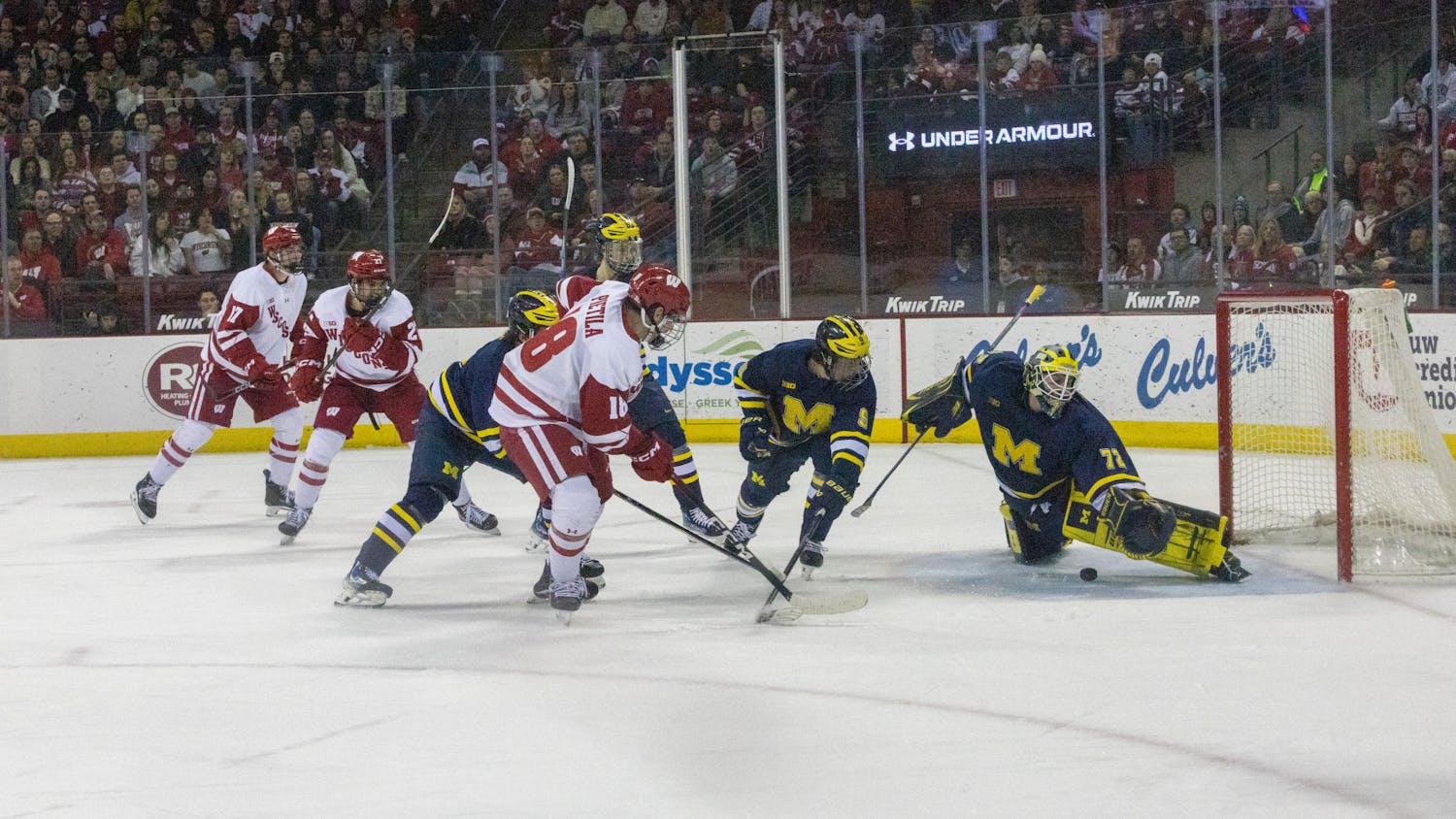Six months ago, one in every three campus voters sent a protest vote opposing the Biden administration's aid to Israel. Since then, the Middle East has only turned more violent, and Vice President Kamala Harris is now the Democratic nominee for president.
Pro-Palestine activists from Listen to Wisconsin, the group who coordinated the “uninstructed” movement, sent nearly 50,000 voters — twice Biden’s 2020 margin of victory — to vote “uninstructed” in Wisconsin’s April primary.
Now, those voters are divided on how to move forward. Some said they will reluctantly vote for Harris, while others said they will not vote until Harris commits to an arms embargo or negotiates a ceasefire.
Since April, campus organizers around the country, including University of Wisconsin-Madison graduate student and Students for Justice in Palestine organizer Dahlia Saba, have coordinated campus protests and encampments calling for a ceasefire, university financial divestment from Israel and a national arms embargo.
“I don't consider myself a single-issue voter generally,” Saba said. “But my single issue is genocide.”
Pro-Palestine protesters are frequent guests at Harris rallies, including roughly 25 protesters at Harris’ Madison rally. At the Democratic National Convention, a smaller than expected crowd protested the Biden administration’s decision to send weapons and aid to Israel, and uncommitted delegates attempted to get a speaking slot but were denied by the Harris campaign.
Despite protests ramping up around the anniversary of the Oct. 7 Hamas terrorist attack on Israel, the movement has made no significant strides on Israel’s war in Gaza, with the U.S. sending $17.9 billion in aid in the past year.
Listen To Wisconsin has now launched a new campaign, “Ceasefire First, Votes Next,” demanding “action from VP Harris and Democratic Leadership to end the genocide before we promise our votes.”
Listen to Wisconsin has organized phone banking and in-person campaigning to promote the pledge.
The organization will soon switch to “get out the vote” tactics, according to volunteer Amanda Hoffman.
Listen to Wisconsin lead organizer Halah Ahmad said the campaign will not “tell people how to vote,” but she thinks people “have the prerogative to demand better from their leaders” and are “opposed to right-wing extremism in the U.S. and abroad.”
The uncommitted national movement came out firmly against former President Donald Trump but didn’t explicitly endorse Harris, encouraging voters to “orient less toward who is the better candidate and more toward what is the better antiwar approach” in a video posted in early October.
Harris has used stronger language than Biden to describe the atrocities of Israel’s war in Gaza, though she hasn’t distanced herself from the Biden administration's policies
Madison’s U.S. Rep. Mark Pocan told the Cardinal earlier this month Harris will take a “different approach” toward Middle East policy than Biden.
Some uninstructed voters said a Harris presidency offers a significant benefit over Trump.
“I feel Donald Trump will also support Israel’s destruction of Palestinian lives,” uninstructed student voter Jenna Emperley told the Cardinal. “I see a chance for more respect and diplomacy under Harris’ administration.”
Saba said her demand is “practical,” “not idealistic.” She wants the government to enforce the “Leahy law” which prevents the government from sending foreign aid to entities implicated in gross human rights violations.
“In the face of all of these horrors that my government is supporting, I don't know how I could stand to actively vote for either of these candidates,” Saba said. “That means I simply cannot vote for either major party candidate this November; I cannot vote for any candidate who supports a genocide.”
Listen to Wisconsin planned a “swing states against genocide day of action” on Oct. 23 along with Pennsylvania and Georgia — swing states with similar “uncommitted movements” and voter pledges. The goal is to “rally folks up until that point and assess where we’re at,” Ahmad said.
“We're leaning into what little hope there may be to put pressure through the mechanisms available to us,” Ahmad said. “We don't think that how you vote on Election Day is the number one way to [pressure the government], because the bombs are falling right now, but it definitely will weigh on people's decision at the ballot box.”






